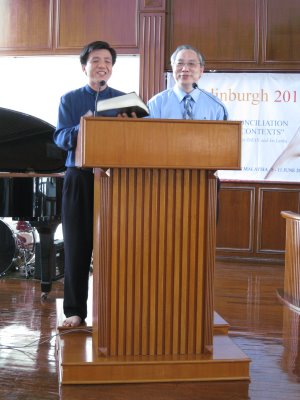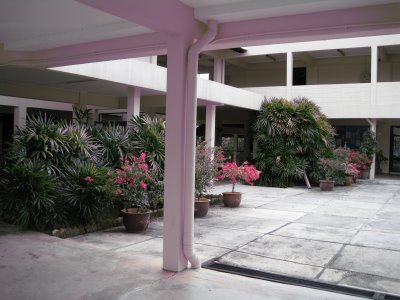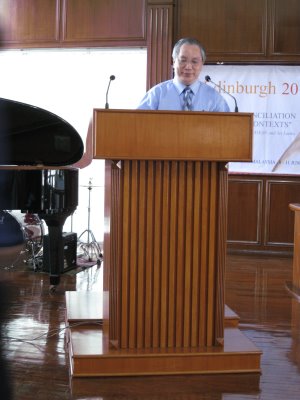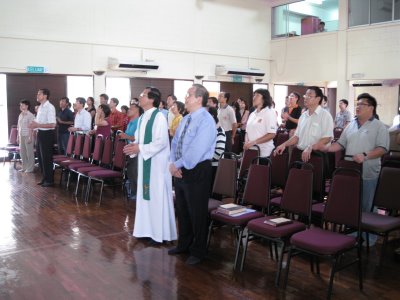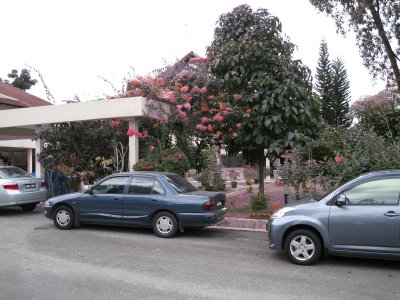
Alex Tang
Articles
- General
- Theology
- Paul
- Karl Barth
- Spiritual Formation
- Christian Education
- Spiritual Direction
- Spirituality
- Worship
- Church
- Parenting
- Medical
- Bioethics
- Books Reviews
- Videos
- Audios
- PhD dissertation
Spiritual writing
- e-Reflections
- Devotions
- The Abba Ah Beng Chronicles
- Bible Lands
- Conversations with my granddaughter
- Conversations with my grandson
- Poems
- Prayers
Nurturing/ Teaching Courses
- Sermons
- Beginning Christian Life Studies
- The Apostles' Creed
- Child Health and Nutrition
- Biomedical Ethics
- Spiritual Direction
- Spiritual Formation
- Spiritual formation communities
- Retreats
Engaging Culture
- Bioethics
- Glocalisation
- Books and Reading
- A Writing Life
- Star Trek
- Science Fiction
- Comics
- Movies
- Gaming
- Photography
- The End is Near
My Notebook
My blogs
- Spiritual Formation on the Run
- Random Musings from a Doctor's Chair
- Random Sermons from a Doctor's Chair
- Random Writings from a Doctor's Chair
- Random Spirituality from a Doctor's Chair
Books Recommendation
---------------------
Medical Students /Paediatric notes
A Quiet Day at Seminari Theologi Malaysia (Knowing God, Knowing Self)
a retreat before a new semester starts (15 June 2009)
by Dr Alex Tang
Knowing God, Knowing Self
The problem: The Sanctification Gap
Presbyterian historian Richard Lovelace identifies the discrepancy that exists between what the Christian ideals of a Christian life as taught in evangelical circles to the spiritual life many Christians are actually living as a “sanctification gap”. Many Christians are aware of the lack of spiritual growth in their lives in spite of having spent years learning under an effective pulpit ministry. Theologian John Coe (2009) suggests that these are “mature beginners” as they have never actually progressed in their spiritual growth. “The sanctification gap” is defined by Christian historian Chris Armstrong (2009) as “the dismal failure of American evangelicals to mature spiritually.” In his study of the contemporary spiritual formation movement, he traces the root of the “sanctification gap” to early twentieth-century fundamentalism. In its zeal to defend against liberalism, the fundamental movement of the 1920s-1950s focused upon the defence of certain important doctrines. Unfortunately in doing so, Armstrong argues, “it had come to identify the Christian life with cognitive beliefs.” Aside from an understanding of the spiritual life as purely an intellectual affirmation of certain propositions, fundamental pragmaticism undergirded by dispensational eschatology favoured activism (soul-saving) rather than contemplation, and views soul-care suspiciously as works-righteousness.
In many ways, knowing God becomes knowing about God.
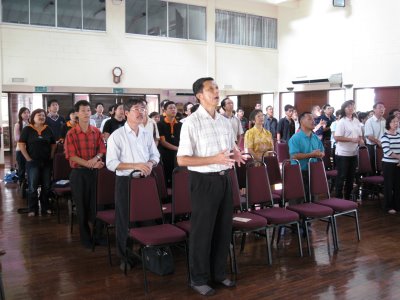
The solution: The doctrine of double knowledge.
John Calvin started his Institutes of the Christian Religion with “[n]early all the wisdom we possess, that is to say, true and sound wisdom, consists of two parts: the knowledge of God and of ourselves.” (p.35). He goes on to say “without knowledge of self there is no knowledge of God” and “without knowledge of God there is no knowledge of self.” This is called the doctrine of double knowledge- knowing God, knowing self. Actually Calvin wasn’t the first to teach it. We can trace it back to Thomas Aquinas, to Augustine and to Iraeneus. Actually the ancient Greek taught about self-knowledge. Socrates taught about ‘knowing thyself.” He was the first to teach that because “knowing thyself” was engraved at the entrance arch of Apollo’s temple in
.
Knowing yourself
‘Who are you?’
Imagine that you are Elijah.
Paraphase of 1 Kings 18:1-19:9
The strong Elijah
· Challenging Ahab –draught (17: 1)
· Brought a dead boy to life (17:19-24)
· Stand up to the 450 Baal priests (18: 20-39)
· Pray for rain (18: 41-45)
· Ran faster than horses (18: 46)
The weak Elijah
· Pride at being a man of God
· Thinking that he is the only surviving prophet of Yahweh (18:22)
· Not listening to Obadiah that he is not
· the narrative refers to ‘his life’
· Jezebel threatens to take it (19: 2)
· He flees for it (19: 3)
· He asks to surrender it (19: 4)
· Some scholars thinks that running away to Kirith Ravine is an act of cowardice (17:5ff)
· He gave up
· Dismissal of his servant at
· Travelling a day further – abandoning God’s covenant people
What do you think about Elijah? Is he different from you?
Acting without reflection reveals who you are
Ah Beng was the only Chinese disciple of Abba Isaac, the most famous of all the Desert Fathers in the Fourth Century. Ah Beng had traveled all the way from
Being a disciple of Abba Isaac, Ah Beng led a very ascetic life. He lived in a simple wooden hut. Soon many became his disciples and the making of a Sow-Lin monastery were in the works. Ah Beng owned only a loincloth which he washed everyday. Unfortunately, whenever he left it out to dry, the rats would tear at it. So Ah Beng decided to keep a kitten to drive away the rats. However, Ah Beng found that now he had to beg for milk in addition to his own food everyday. This took time away from his prayers and meditation. So Ah Beng decided to keep a cow to produce milk for his kitten. When he had the cow, Ah Beng found that he now had to find grass for his cow. Again this cut into his prayer and meditation time. Then Ah Beng had a bright idea. Instead of begging for his own food and grass everyday, he would cultivate the land around his hut to grow wheat and use the stalk to make hay for his cow. In farming, Ah Beng found out the hard way that it took even more time away from his prayers and meditation. So in frustration, Ah Beng decided to employ people to work his farm. Ah Beng discovered that supervising his employees took up a lot of his time so he decided to employ a manager. In a short while, Ah Beng discovered that he had became very rich!
One day Abba Isaac decided to visit his disciple Ah Beng in
As Abba Ah Beng has found out that such a simple spiritual discipline of asceticism and wearing a loincloth can escalate into a full bloom Sow-Lin temple. I wonder how many of us are aware how complicated Christianity has become. We build multi-million Ringgit churches which are used only a few hours every week. The rest of the time, the buildings are left empty. These are our houses of worship. We worship in air-conditioned comfort, with upholstered seats, clear view of the stage where we see the musicians and speakers perform. Our sermons are uplifting, comforting and simplified so as not to make demands on our time, effort and wallets. We are entertained by karaoke choruses, PowerPoint presentations with sounds and video, and brilliant solo performances by singers and choirs. There are many translations of the Bible in English; offering us the choice of choosing by the beauty of the language (KJV) or reading like a newspaper (The Message). Our theologies are so complicated and convoluted that we are willing to kill each other over it. We fellowship with people who are like us in status; socially and economically. To help the poor and the marginalised, we prefer to give money rather than to get our hands dirty. We retreat into our religious ghettoes and watch as social injustice and racial polarisation tear apart the infrastructure of our society.
Have you ever wondered what God really require of us? Does God wants big fancy churches, emotionally stirring worship performances and Christians who are not disciples? The prophet Micah has this to say, “He has showed you, O man, what is good. And what does the LORD require of you? To act justly and to love mercy and to walk humbly with your God” (Micah 6:8). God’s requirements from us are simple; (1) we are to be just in our action, (2) we are to be merciful to others, and (3) to walk humbly with our Creator God. Our Lord Jesus Christ clarified that for us in what is known as the Great Commandment; we are to love God and to love others as we love ourselves (Mark 12:28-31).
Ever wonder how something so simple can become as complicated as modern day Christianity? I believe it is time that we re-examine the way we practice our religion. We need to get a religious KISS (Keep It Simple, Stupid). We need to ask ourselves which of the many activities we do in church is what God requires. Our church facilities and assets must also be examined to see if that is what God requires. We also need to reassess if we neglect what God requires of us: to seek social justice, to give voice to the oppressed and marginalised, to defend the defenceless and vulnerable, to eradicate poverty and to reduce suffering of the sick, wounded and traumatised.
If this means we have to simplify our lifestyles in order to act justly and to show mercy, let it be so. If it means we have to re-examine our dependence on lavish church buildings, then it is needed. If it means our worship be less of a performance and more of a service, may it be done. If this means our pulpit teaching be more Christ centered rather than man or psychology-centered, it will be beneficial. If it means we have to reduce our church activities to its minimal so more time can be spent outside the church building to offer justice and mercy, let us do it then. Jesus led a group of disciples for 3 years and left them to form a church. Within three hundred years, the church became the most powerful religious institution on earth after it became the official religion of the
Reflection Questions
a. What do you think Elijah had learned about himself in the passage?
b. What have you learned about yourself?

Knowing God
‘Who is your God?’ Read 1 Kings 19:8-18
• Wind • Earth • Fire • ?water • “a gentle whisper”
Recharged Elijah must • Anoint Hazael, king over Syria • Anoint Jehu, king over Israel • Anoint Elisha Some six years after this he warned Ahab and Jezebel of the violent deaths they would die (1 Kings 21:19–24; 22:38). He also, four years afterwards, warned Ahaziah , who had succeeded his father Ahab, of his approaching death (2 Kings 1:1–16). During these intervals he probably withdrew to some quiet retirement, no one knew where. His interview with Ahaziah’s messengers on the way to Ekron, and the account of the destruction of his captains with their fifties, suggest the idea that he retired to Mt. Carmel.
(1) Listening to God
A legend has it that there was a temple built on an island and it held a thousand bells. Bells, big and small, fashioned by the finest craftsman in the world. When the wind blew or a storm raged, all the bells would peal out in a symphony that would send the heart of the hearer into raptures. But over the centuries, the island sank into the sea and, with it, the temple bells. It is said that the bells continued to peel out, ceaselessly, and could be heard by anyone who would listened. Inspired by this legend, a young man travelled thousands of miles, determined to hear those bells. He sat for days on the shore, facing the vanished island, and listened with all his might. But all he could hear was the sound of the sea. He made every effort to block it out. But to no avail; the sound of the sea seemed to flood the world. He kept at his tasks for weeks. Each time he got disheartened he would listen to the village elders who spoke with passion of the mysterious legend. Then his heart will be aflame…only to be discouraged again when weeks of further effort yielded no results. Finally he decided to give up the attempt. Perhaps he was not destined to hear the bells. Perhaps the legend was not true. It was his final day, and he went to the shore to say goodbye to the sea and the sky and the wind and the coconut trees. He lay on the sand, and for the first time listened to the sound of the sea. Soon he was so lost in the sound that he was barely conscious of himself, so deep was the silence the sound produced. In the depth of that silence, he heard it! The twinkle of a tiny bell followed by another, and another, and another…and soon every one of the thousand temple bells was peeling out in harmony, and his heart was rapt in joyous ecstasy.
This story teaches us two important lessons about listening and awareness. First, all of us have a desire to hear God’s voice. We want to hear what he is saying to us. We want him to speak peace and comfort into our trials and tribulations. We have been taught early in our Christian life to set aside time for prayer and Bible reading. We call it the “quiet time.” We are told that if we have our quiet time regularly, we will hear the voice of God. If not audibly, at least we know that he speaks to us in answered prayers or certain passages in the Bible we are reading that will convey his speech. There are two possibilities concerning our quiet time. One is that we become too busy that we do not have time to pray and read the Bible. Hence we feel guilty, and we think we have lost the opportunity to hear God’s voice. The other possibility is that we continued faithfully in our prayers and Bible reading but we find it dry and boring after a while. We also find that we do not hear God speaking to us. We must be aware that God speaks to us in many ways. He speaks to us by his Word.
God also speaks to us in our prayers, through other people, circumstances, dreams, and into our daily lives. For those of us who are too busy for prayer and Bible reading, be aware that God still speaks to us in our busy lives. For those who are disciplined in prayers and Bible reading, be careful that we do not try too hard. Like the young man on the beach who tried so hard to hear the bells by consciously shutting out the ocean sounds, we may too be trying too hard to hear God’s voice. In the spiritual life, it is not effort that counts. Spiritual growth is not something we build but who we become. Sometimes, we try too hard in our spiritual life. For example, we want to have faith. Now, faith is not something we can create. There is nothing we can do to make us have more faith. Faith is a gift, something that only God can give. The only thing we can do is ask God for it.
Second, all of us live hectic, busy, and noisy lives. A recent scientific study done showed that cities have a high level of ambiance noise. This level of ambient noise can be disruptive to our well being if we are exposed to it for too long. The noise will also cause deafness. Yet it is in our hectic, busy, and noisy lives that God speaks to us. Unfortunately, many of us are already deaf to him because we have not learnt to embrace the noise until we can hear the silence within. The noisy world is like a weather storm; a typhoon. There is always a centre called the “eye” of the storm. This “eye” is a calm, quiet, and peaceful area within the raging storm. We must learn to be aware of the noise around us. We can embrace the noise of the world and move beyond it into the silence within. It is in this silence that we hear the voice of God. How do we not try too hard, and enter into the silence of our busy and noisy lives? We begin by being aware that God is in our busy and noisy lives. God is not only just present in church on Sunday. We do not leave God behind when we leave the church building after the service. God is not only present in our daily lives, but he is speaking to us all the time. Speaking to God is prayer and Paul has taught us to pray “unceasingly”. This means that it is possible to be speaking and listening to God 24/7. Since God is already with us, there is no need to try too hard to reach him. If possible, set aside some time for him alone, this is your quiet time. If not, listen for him in the happenings of your daily lives. Try to be aware of God’s presence and voice in the routine, mundane of your daily lives. Catch a glimpse of God in a sunrise, a beautiful flower, a friendly smile, a loving touch, an opportunity to offer help, and to receive help. When we become aware of God’s presence in our lives, each encounter becomes dazzling like a sudden burst of joy. Time seems to stand still. There is a deep warm silence. And in the silence you will hear the voice of God who calls you his beloved. It is possible to hear the harmony of a thousand bells.
(2) Awareness of God (Habits of Familiarity)
It is said that when the Great Library of Alexandria was burned down, only one book survived. It was a very ordinary book, not like those who were burnt which had leather binding and gold lettering. This was plain simple paperback, dog eared, and yellowed by age. When found among the ashes, it was thought to have no value. It was sold for 10 cents to a poor man who barely knows how to read. This plain and common book however was probably the most valuable book in the world. In the last section of the book were a few sentences that pointed to a source of the secret of immortality or eternal life. This source is a tiny pebble, that if ingested will give the person eternal life! The writing declared that this precious pebble was lying somewhere along the beaches of Desaru, facing the South China Sea in the southern tip of the east coast of Peninsular Malaysia. This pebble was lying among thousands of pebbles that were exactly like it, except in one aspect- whereas all other pebbles were cold to the touch in the morning; this one will feel warm, almost as if it were alive. The man rejoices at his good luck. He sold everything he had, borrowed a large sum of money that will last him for at least a year, booked a room at Desaru Pulai Resort Hotel, and began his search for this priceless pebble. He worked out a search grid and did his search systematically. This is how he did it. Every morning, he will go to the assigned search area. He would lift a pebble. If it was cold to the touch, he would not throw it back on the shore because if he did that, he might be examining the same stone over and over again. Instead, he will throw the stone into the South China Sea. So each day for hours he would continue in this routine: pick up a pebble; if it feels cold, throw it into the sea; lift another… and so on, endlessly. He spent a week, a month, a year and finally years on this quest for eternal life. His savings ran out and he borrowed more money. He got a special discount from Desaru Pulai Resort Hotel for being a long staying customer.
On and on his search went: lift a pebble, hold it, feel it, if cold, throw it into the sea, lift another. Hour after hour, week after week, day after day….still no pebble of immortality. One evening, he picked up a pebble and it was warm to his touch – but through sheer force of habit, he threw it into the South China Sea!
How many of us, through sheer force of habit, accidentally throw away our precious pebbles of eternal life? I am referring to the Holy Scripture where by continual exposure to it daily, weekly, monthly… we became so familiar with it that all the precious words of wisdom and knowledge contained within it that can give us eternal life became as common as the pebbles on the beaches of Desaru. Hearing the Word of God read from the Old and New Testament during Sunday worship has become so familiar, so routine, that we are no longer hearing but waiting for it to be over so that we can get on with our service. Hearing the Word of God preached from the pulpit whether as a sermon or a homily is another familiar routine. We listen for the jokes, the mistakes the preacher makes, and think of dinner or whatever our next meal will be like. We understand what the preacher is saying yet the pebble feels cold to the touch. Some of us even listen to other sermons and talks on our MP3 players. Yet it has become so familiar that often, we miss a warm pebble because we are so used to throwing away cold pebbles. This also applies to our daily devotion or quiet time; time we have decided to set aside to spend with God. Yet after a time, this has become a familiar routine habit. We begin to find that it is harder and harder to notice warm pebbles because there are so many cold pebbles. Could it be that we have been throwing away the warm pebbles? Let me suggest a way to avoid throwing away warm pebbles accidentally.
The way is to ask ourselves three questions
(1) When is the most important time?
(2) Who is the most important person?
(3) What is the most important thing to do?
(Pause now and write down the answers to these three questions)
The answers to these three questions are in the Bible. Yet how often have we missed them because of our familiarity with it. The most important time is now. Though the Bible has a strong emphasis on the continuity with the past and a strong eschatological component (the future), its emphasis has always been living in the present. What is important is our encounter with the living Christ in this present moment of our life. Now is important. The answer to the second question is Jesus Christ. He is the most important person because he is the author and perfector of our faith. Because we use the word Jesus Christ so often, it has become such a ‘common’ word that we do not attach much emotional or relevance to it. Ending our prayers “in Jesus’ name” has now become a formula. In becoming so familiar with name Jesus, we often forget that He is the most important person in our life. The most important thing to do is to love. The Bible is a love story - between God and His people. Jesus came to show God’s love for us. Paul teaches us how to love one another in community. Yet, we have become so familiar with reading about love that we do not get out of our seat and love. Do we love our spouses, our children, our families, our church, our community, our co-workers, and our country? How have we shown it today? Love is in the doing, not in the talking.
(3) You become what you do
Once upon a time, during the time of the Crusades there was a young strong white knight who was very pious and very devoted to God. He made it his personal quest to kill all black knights. The black knights were unholy and impure. Throughout his long life this white knight killed many black knights. One day when he was old, he met a young white knight on the road. To his surprised he was immediately attacked by this white knight. He fought valiantly but was unable to overcome this young man. Throughout the fight, the question lingers at the back of his mind, ‘Why is this white knight attacking me?’ Just before he was killed, he caught a reflection of himself in the shining shield of his opponent. The knight reflected in the shield was black.
Reflection Questions
a. What do you think Elijah had learned about God in the passage?
b. What have you learned about God?
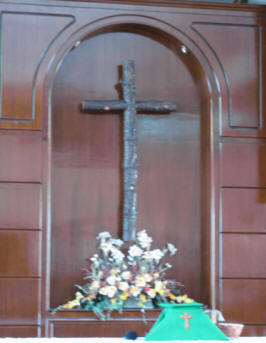
Closing devotion
In the Joseph’s narrative in Genesis 37-49
- Joseph’s dreams
- Joseph sold by his brothers
- Joseph and Potiphar’s wife
- Joseph in jail (cupbearer and baker)
- Pharaoh’s dream
- Joseph in charge of Egypt
- The famine
- The Jacob family Egypt
This is a powerful narrative of jealousy, good and bad. It also ensures the survival of the Jacob family, the family that will become ancient Israel nation.
Who do you think is a vital link in this narrative?
- Joseph
- His brothers
- Potiphar
- Jacob
- The Pharoah
An unnamed man in Shechem (Gen.37:14-15)
14 So he said to him, “Go and see if all is well with your brothers and with the flocks, and bring word back to me.” Then he sent him off from the Valley of Hebron.
When Joseph arrived at Shechem, 15 a man found him wandering around in the fields and asked him, “What are you looking for?”
16 He replied, “I’m looking for my brothers. Can you tell me where they are grazing their flocks?”
17 “They have moved on from here,” the man answered. “I heard them say, ‘Let’s go to Dothan.’”
So Joseph went after his brothers and found them near Dothan.
This unnamed man is the link. If he has not been helpful, if you have not told Joseph where his brothers are things will have been different.
God has a plan. This plan is unfolding with and without our help. God is sovereign. Actually he does not need us but he loves us enough to allow us to take part. Sometimes we actually get in the way.
When I was about six, my father was clearing his overflowing bookshelves. He piled all the books he wanted in one pile and books to be burnt in the other. Helpful number one son come along and want to help. Take this pile of books outside for your mother to burn, said my father. Guess which pile did number one son took?
Sometimes we are a hindrance to God’s plan. This is especially when we ran ahead of him with our own plans. God is a sovereign God. God is larger that what we can imagine him to be.
Today we have learned something about ourselves and about God. I hope we have learnt enough to stay close to him.
Soli Deo Gloria
|posted 15 June 2009|
